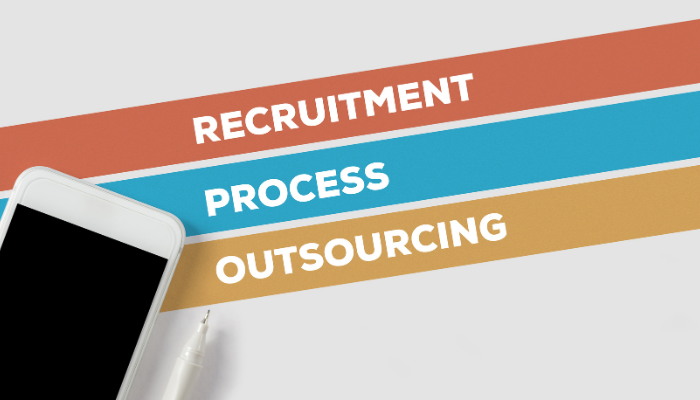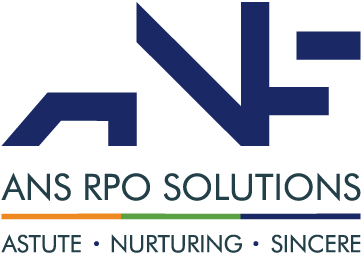Recruitment Process Outsourcing (RPO) has emerged as a strategic solution for organizations seeking to streamline their talent acquisition processes. In today’s competitive job market, attracting and retaining top talent is crucial for business success. RPO offers a comprehensive approach to recruitment by outsourcing all or part of the recruitment process to specialized providers. It brings expertise, scalability, and cost savings to the table, allowing organizations to focus on their core business while leveraging the knowledge and resources of RPO partners. By harnessing advanced technologies, data-driven strategies, and industry best practices, RPO recruitment agency is transforming the way companies acquire talent, enabling them to stay agile, competitive, and successful in the ever-evolving job market.
Recruitment Process Outsourcing (RPO)
Importance of RPO:
Recruitment Process Outsourcing (RPO) holds significant importance in today’s business landscape. It brings specialized expertise and efficiency to the recruitment process, ensuring the identification and attraction of high-quality talent. RPO providers possess deep knowledge of sourcing strategies, screening techniques, and candidate evaluation, enabling them to streamline and optimize the hiring process.
Cost optimization is another crucial aspect of RPO. By leveraging economies of scale and negotiating favorable terms with job boards and vendors, RPO providers help organizations reduce recruitment costs associated with sourcing candidates, screening and other aspects of a Full Lifecycle Recruitment process.
Scalability and flexibility are inherent benefits of RPO. As hiring needs fluctuate, RPO recruitment agency providers have the infrastructure and resources to quickly adjust recruitment efforts, ensuring organizations can adapt to changing demands without compromising talent acquisition quality.
RPO also enhances overall recruitment efficiency. By utilizing advanced technologies, applicant tracking systems, and data-driven strategies, RPO providers expedite the hiring process, reduce administrative burdens, and improve overall productivity.
Furthermore, RPO providers prioritize candidate experience. Through personalized communication, timely feedback, and efficient processes, they create a positive and engaging candidate journey, ultimately enhancing employer brand perception and attracting top talent.
Overall, RPO offers organizations the expertise, cost optimization, scalability, efficiency, and improved candidate experiences necessary to achieve successful talent acquisition outcomes.
Read More: VMS Recruitment VS Conventional Recruitment
Challenges and Opportunities:
One of the significant challenges facing RPO recruitment agency is the increasing competition for talent in a globalized job market. Organizations are vying for highly skilled professionals who possess in-demand skills and experience. RPO providers need to adapt to changing candidate preferences, diversity requirements, and evolving skill demands. Additionally, data privacy regulations and compliance issues pose challenges that must be effectively managed.
However, these challenges also present opportunities for RPO providers to differentiate themselves through innovative solutions. Leveraging advanced technologies like artificial intelligence (AI), machine learning (ML), and data analytics can help in sourcing, screening, and matching candidates more efficiently. RPO providers can also focus on employer branding and candidate experience to stand out in a competitive market. By building strong employer brands, creating engaging candidate experiences, and offering tailored recruitment strategies, RPO providers can attract top talent and establish long-term partnerships with organizations.
Benefits of RPO:
Recruitment Process Outsourcing (RPO) provides several key benefits to organizations. Firstly, it brings specialized expertise and industry knowledge to the recruitment process, ensuring access to top talent and efficient candidate screening. Secondly, RPO offers cost savings by eliminating or reducing recruitment-related expenses. Additionally, RPO provides scalability and flexibility, allowing organizations to adjust their hiring efforts based on fluctuating needs. Time savings and faster time-to-hire are also advantages, thanks to streamlined processes and access to candidate databases. Lastly, RPO enhances candidate quality resulting in better hiring decisions. Overall, RPO empowers organizations to optimize their talent acquisition strategies, improve efficiency, and stay competitive in the market.

Future of RPO:
A. Technology Integration: The future of RPO lies in integrating advanced technologies into recruitment processes. AI and ML will play a significant role in automating repetitive tasks, enhancing candidate matching algorithms, and delivering personalized experiences. Chatbots and virtual assistants will streamline candidate engagement and communication, providing instant support and information throughout the hiring process.
B. Focus on Data Analytics: RPO providers will increasingly leverage data analytics to gain insights into recruitment metrics, candidate behavior, and market trends. This data-driven approach will enable them to make more informed decisions, optimize recruitment strategies, and enhance client satisfaction. Predictive analytics will help forecast hiring needs, identify potential bottlenecks, and enable proactive talent acquisition planning.
C. Talent Pipelining: RPO will evolve to focus on building and maintaining talent pipelines. By nurturing relationships with passive candidates and creating talent communities, RPO providers can quickly fill positions with pre-qualified candidates, reducing time-to-fill and improving quality of hire. Building long-term relationships with candidates ensures a steady supply of talent for current and future needs.
D. Enhanced Candidate Experience: As candidate expectations continue to rise, RPO providers will prioritize delivering exceptional candidate experiences. This includes personalized communication, efficient application processes, and timely feedback, all enabled by technology-driven solutions. RPO providers will invest in user-friendly applicant tracking systems, mobile-friendly interfaces, and seamless candidate journeys to attract and retain top talent.
E. Global RPO: With the growth of remote work and global talent pools, RPO providers will expand their services to help companies hire from the international markets. This will involve understanding cultural nuances, compliance with local regulations, and effective management of virtual recruitment processes. RPO providers will establish partnerships and networks worldwide to tap into diverse talent markets and cater to the global recruitment needs of organizations.
Conclusion:
The future of RPO holds immense potential for transforming the staffing industry. As organizations strive to attract top talent and optimize their recruitment processes, RPO providers will play a pivotal role in delivering innovative solutions. By embracing technology, focusing on data analytics, prioritizing candidate experience, talent pipelining, and expanding globally, RPO will continue to evolve and shape the way organizations acquire talent in the coming years. Embracing these trends and opportunities will ensure that RPO remains a vital component of a successful talent acquisition strategy in the future. RPO providers that adapt and embrace these changes will be well-positioned to thrive and deliver value to their clients in the ever-evolving talent landscape.


